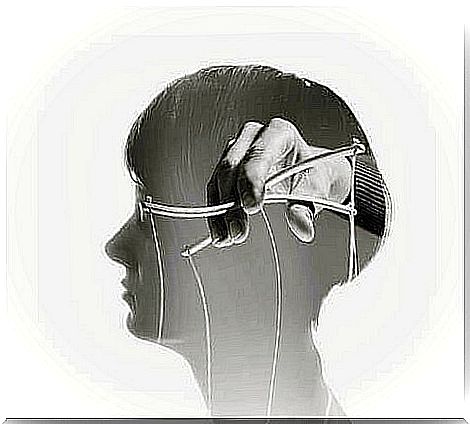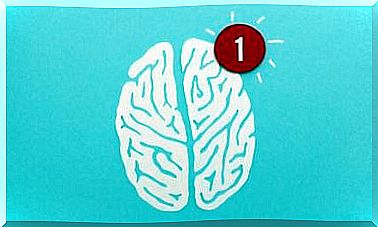The Dark Triad: Narcissism, Machiavellianism And Psychopathy

People who lack the ability to connect with others or have the ability to consciously disconnect from the emotions, fall under something we call the “dark triad”. This set of personality traits includes narcissism, Machiavellianism and psychopathy.
In extreme cases, people who have traits from the dark triad become criminals or end up in mental illness. But there are also people among us who may not have been diagnosed, but still have these characteristics.
People with these traits and behaviors are said to have dark personalities. Why? Because of their insensitive, selfish and vicious tendencies in their relationships with others. Delroy L. Paulhus and Kevin M. Williams, psychologists at the University of British Columbia, called these traits “the dark triad” because they are the most negative aspects of human relationships. Let’s take a look at what they are.

Narcissism
“I can do what I want” or “Other people exist to love me” are examples of narcissistic thoughts. They are selfish people, with an egocentric sense of right and wrong and a positive self-image that is unrealistic when it stands in contrast to how those around them see them. This is the first personality type in the dark triad.
Narcissists are “snake tamers”. First, people love them ; they seem cozy and attractive. But as time goes on, they can become very dangerous. People around them may be unable to see what the real intentions are: to gain admiration and power.
Routines tend to bore them, so they look for challenges. This is why most narcissists are leaders or work in occupations that involve high levels of stress. According to psychoanalyst Michael Maccoby, narcissism is an increasingly common disorder in the upper echelons of business. It is directly related to competition, salary and glamor.
The negative aspect of narcissism
One of their strengths is their special ability to persuade others. They use it to surround themselves with a large number of followers. They easily convince others to do what they want them to do.
In short, they get what they want. In addition, since they do not have empathy, it is not difficult for them. They are not picky at all about the means and strategies they have to use to achieve their goals.
Narcissistic people have zero interest and concern for others, even if they make it look like that. They do not experience remorse and are unaffected by the needs and feelings of the people around them.
But their self-esteem is their Achilles heel. Narcissists often have very low self-esteem and are often somewhat vulnerable and insecure. This is why they try to surround themselves with people they consider inferior, so that they can dominate and feel powerful.

Machiavellianism
For the “Machiavellian list”, the end justifies the means, regardless of the consequences. They are usually very calculating and cold people and have no real emotional connections with others.
Although they tend to have characteristics in common with narcissists, such as selfishness and the use of others, there is something that sets them apart: they see themselves and their relationships realistically.
Machiavellians do not try to impress anyone. Instead, they show themselves as they are and prefer to see things clearly because they can manipulate others better that way. In fact, they focus on the feelings of the people they want to manipulate to get what they want. If they anticipate your emotions, they will be able to choose the right strategy to manipulate you.
According to psychologist Daniel Goleman, people with Machiavellian characteristics have less empathy. Their coldness seems to come from an inability to process their own feelings and the feelings of others.
In fact, emotions make them so anxious that when they feel anxious, they usually do not know how to distinguish it from sadness or fatigue. However, they tend to be very good at understanding what others are thinking. But as Goleman says, even if their head knows what to do, their heart has no idea.
Psychopathy
Psychopaths consider others as objects that they can use and throw away at will. But unlike the other dark triad personalities, they almost never experience anxiety. They like that they have no idea what it’s like to be scared.
Without fear, they can be calm even in emotionally intense, dangerous and frightening situations. They do not care too much about the consequences of their actions. They are the ones most likely to end up in jail of the three.
Psychopaths have desensitized the neuronal circuits to the edge of the emotional spectrum associated with disorder. Therefore, their cruelty seems insensitive because they are unable to detect them. In addition, remorse and shame do not exist for them.
But psychopaths can easily get under the skin of others and press their buttons if it will give them what they want. They are good persuaders. However, even though they focus heavily on social cognition, they understand relationships and the behavior of others only from a logical or intellectual perspective.

How to avoid falling into the trap
If the dark triad exists in your relationship, there will probably be abuse and psychological violence. These people are poisonous, using force and manipulation to capture their victims. The key to not falling into their nights is healthy emotional independence. Learn to set clear boundaries in your relationships and not let anyone pass them by. Protecting yourself must come first.
Source list:
The Dark Triad of Personality: Narcissism, Machiavellianism, and Psychopathy









